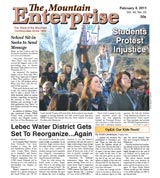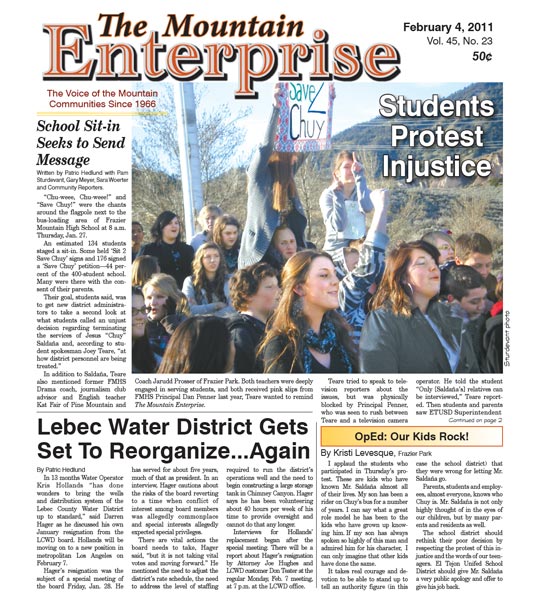FRAZIER PARK, Calif. (Wednesday, Feb. 9, 2011 at 4:25 p.m.)–The Center for Biological Diversity issued the following press release today.
BAKERSFIELD, Calif.— A coalition of endangered species advocates, American Indians, environmental justice advocates and local residents who have been battling Kern County’s approval of the controversial Tejon Mountain Village resort development on Tejon Ranch filed notice today that the groups will appeal a lower court’s decision allowing the project to move forward.
The suit was originally filed in late 2009 under the California Environmental Quality Act in Kern County Superior Court in Bakersfield by the Center for Biological Diversity; Wishtoyo Foundation; TriCounty Watchdogs; and the Center on Race, Poverty & the Environment. In November 2010, Judge Kenneth Twisselman ruled in favor of Kern County and Tejon Ranch. The case will now move to the 5th Appellate District in Fresno.
“We strongly disagree with the judge’s ruling that this project complied with the law and are eager to prove our case before the court of appeal,” said Adam Keats, director of the urban wildlands program at the Center for Biological Diversity. “Tejon Mountain Village would be a dagger in the heart of some of the California condor’s most ancient and important habitat, and we’re committed to fighting its illegal approval.”
The development of luxury homes, golf courses and hotels would destroy critical habitat of the iconic and severely endangered California condor and would potentially derail the most expensive species-recovery effort ever attempted. The project would also add significant air pollutants and greenhouse gases to an area that already suffers from the worst air pollution in the country. It would rely entirely on water unsustainably imported from the State Water Project, and it is sited on top of ancestral homes, sacred places, burials and historical remains of the Chumash, Kaiawasu, Kitanemukand Yolumne tribes. It would also be sited along two of the largest earthquake faults in the country and in an area known for catastrophic and deadly wildfires.
“The California Environmental Quality Act at least requires that the Native Americans who have called Tejon Ranch home for thousands of years be provided with the precise location of their burials and cultural remains uncovered during environmental review, especially upon request,” said Jason Weiner, staff attorney for the Wishtoyo Foundation.
This is part of the February 04, 2011 online edition of The Mountain Enterprise.
Have an opinion on this matter? We'd like to hear from you.


